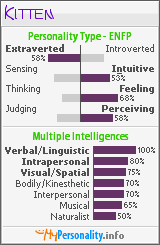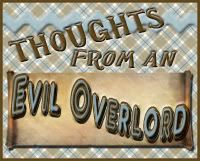 We're gonna start this post "Kitten Confessions" style:
We're gonna start this post "Kitten Confessions" style:My name is Kitten, and I am a New Englander who has never visited Cape Cod.
That's like saying you're from Jersey and you've never been to the Jersey Shore.
Why have I never been to the Cape? It's simple: I am the spawn of a Westchester County-born-and-raised mother and an Elizabeth, New Jersey-born-and-raised father. Cape Cod is simply not in my DNA. We're Jersey Shore people. We vacationed on Long Beach Island when I was a child.
That having been said, I have had numerous people over the years look at me quizzically and in a state of disbelief when I tell them that I have never once set foot on the Cape.
"How could you live in Connecticut your whole life and never have been to the Cape?"
"What do you mean, you've never been to the Cape?"
"I've got to take you to the Cape with me next summer, Kitten!"
Well, it looks rawther unlikely that I'll make it up to the Cape this summer. But at least I can go in my imagination. That's why I decided to add The Big House to my Summer Vacation Reading Challenge.
The Cape is known for having elaborate summer homes that have been in families for generations. Unfortunately, due to the increased price of real estate over the years (but not so much in this economic downturn), and the costs of maintaining such houses, many families have been forced to sell their beloved vacation homes. That's the dilemma George Howe Colt, his siblings, and other extended family members are facing as they spend one last summer in their beloved Big House.
This memoir is very, very dense with detail, and at times, especially in Part One, it's difficult to keep track. Colt does an excellent job tracing his family tree back to his great-grandparents, who first purchased the land on the Cape. As he details his genealogy, he chronicles a very extensive history of life on the Cape: who settled there, why they settled there, and their demographics. It is a very WASP-y portrait of those who first settled there: upper class Bostonians who rarely ever married outside of the city.
As the book progresses, Colt writes about the innocent memories of childhood: the Big House's extensive collection of books, sailing races in Buzzards Bay, and playing Sardines (a variation of Hide and Seek) with his brothers and cousins. These were the memories that I best identified with, as I have similar ones from my years of vacationing on LBI.
But not all of the Big House memories are pleasant. Colt writes about his grandmother's mental illness, her extended stays at psychiatric hospitals, and the effects that this had when she came back to the Big House to stay with other family members. There is also the story of his aunt, Sandy, who was dying of leukemia and wished to spend her final days at the Big House--only to succumb shortly before she was to arrive there. Finally, among other tales, Colt writes about his own rebellious adolescence, how he wanted to disassociate from anything related to his Bostonian, Harvard-educated heritage, especially his father, an alcoholic who was having an affair.
This may seem like a fractured tale, but The Big House is really a tale of healing. Slowly, the family starts to repair its relationships. However, as the healing continues, Colt and his extended family realize that maintaining the Big House is getting too expensive for everyone involved, so they make the decision to sell it. The question is, who will earn the winning bid? Will it be a family member who will take care of the estate, or someone outside, who may tear down the house and subdivide the land?
This was a difficult book for me because I know very little about the Cape. Colt makes many geographical and historical references that were very hard for me to relate to. I had better luck relating to the accounts of family memories, which came in the second part of the book. That was much easier for me to read and get through.
One other big problem with this book was that it is written in narrative form; there is very little dialogue. I often have difficulty reading straight narratives, especially when they have as much detail as this one does. I had to re-read some passages a few times in order to get all of the facts straight; I'm not sure how well I succeeded.
Overall, The Big House really was a good book when Colt wrote personal accounts about his family and his memories of the Big House itself. If you can get past all of the historical detail in the first part it isn't such a bad little book.
This is the latest entry in my 2009 Summer Vacation Challenge. I know that one of the books can't cross over into other challenges, but how can I not count this as a book I've read? Aw, the hell with it, I'm adding it to my 2009 100+ Reading Challenge. How could I not?
And don't forget to check my archived lists when you get a chance!


































3 comments:
I think I might give this a try. I lived on the Cape for 2 years. I am also Westchester County Born and Bred! :)
Great review, Kitten. Have a wonderful day!
That's okay - I've been in NC for almost fifteen years and last spring was my first visit to Kitty Hawk.
(I also grew up in Oregon and in 19 years, never saw Crater Lake.)
L. Diane Wolfe
www.circleoffriendsbooks.blogspot.com
www.spunkonastick.net
www.thecircleoffriends.net
Yeah, the title of the book (and cover) totally put me off. (I know, not supposed to judge by the cover yada yada)
I too would have a hard time with the straight narrative. And it did sound a little dull to me until you got to the part about relating the bad memories.
Isn't that sad? I can't stand happy books, I live for conflict!
Post a Comment